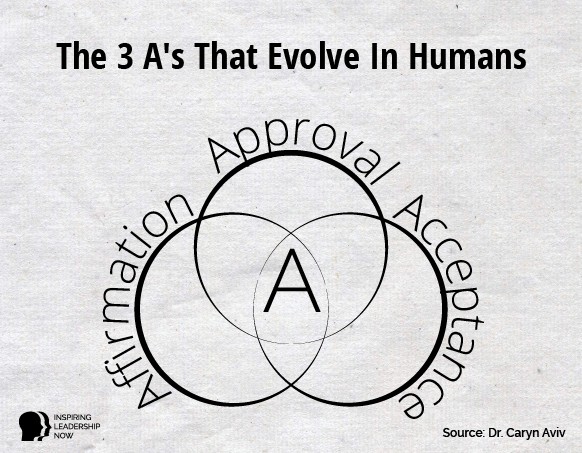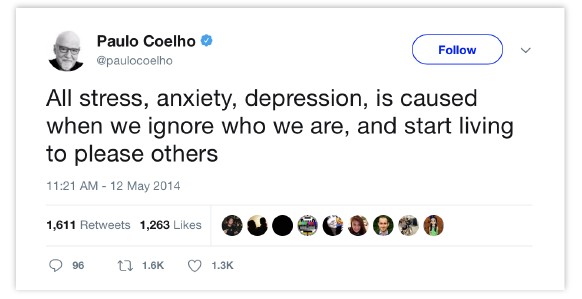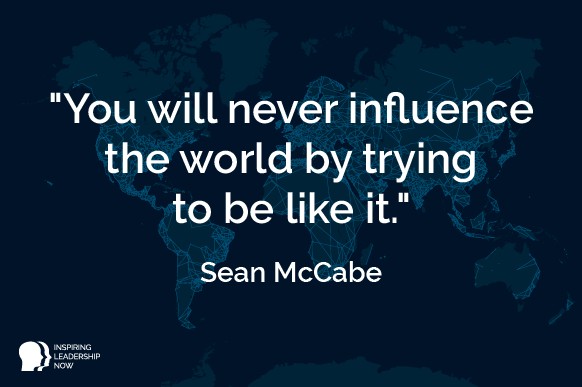Last updated: 9 August 2019

It takes courage to say “no!” in the workplace. Especially these days, when the work environment is more competitive than ever.
But learning how to set boundaries at work by saying no to tasks you don’t have the resources for – or that you shouldn’t be doing – will not only free up your time, but will gain you respect.
That said, people (and especially people pleasers!) are scared to refuse work, even when they’ve already got their hands full, for a whole bunch of reasons, such as:
- They might be seen as lazy
- They might miss out on a promotion
- They’ll be thought of as someone who’s not a team player
- They’ll be seen as being less than totally dedicated to the business
- They might lose their job
Of course, part of the problem could be that their job is a particularly demanding one. Or it could be that their boss is a particularly demanding boss.
Or it might simply be the ethos of the place where they work, where everyone feels under pressure to go the extra mile and always do more.
And that’s what people pleasers do instinctively.
They find it almost impossible to say “no!” They want to be loved, to be respected, to be valued and appreciated, and to get those things, they feel the need to do whatever is asked of them.
Even if it threatens their own current workload. Or their health. Or their sanity. Even if it means they end up being little more than a doormat.
But it doesn’t have to be that way. In fact, saying “no!” and setting boundaries is the easiest way to gain the respect and admiration of the people you work with.
How To Set Boundaries At Work?
There are many different ways you can start to set boundaries at work, but here are 8 techniques that’ll help shift your perspective and give you more confidence to say no:
1. Accept That You Can’t Please Everyone
2. Stop Apologizing For Saying “No!”
3. Consider The Request In Context
4. Communicate Your Needs Honestly And Clearly
5. If Possible, Offer An Alternative
6. Remember You Have A Choice
7. Let Your Boundaries Liberate You
8. Use “Power Words” To Smooth Your Language
In a few moments, we’ll be looking at each of these in detail, but first, let’s take a look at why people pleasing can be such a natural and automatic behavior…
Saying No To Some Things Means Saying Yes To Others
According to Dr. Caryn Aviv, wanting to please people is something human beings learn as they’re growing up.
They look to the outside world for what she calls the 3 A’s: affirmation, acceptance and approval.

In other words, they want people to like them. They want to be part of the gang. They want to fit in and they don’t want to upset anybody.
They don’t have the confidence to say no, because they feel somehow responsible for other people’s feelings.
The pressure to please and to always do more exists in society in general, and not just in the workplace.
These days you have to get up at 4am to meditate and be ready for the day ahead. Then on to the gym to exercise so your body and mind are at their peak, helping you operate at your maximum efficiency.
If you’re a working mother, you might also have to get the kids ready for school, have sex with your husband, put the clothes on to wash, tidy the bedrooms, shove the dishes in the dishwasher, get to work on time, put in a 16-hour day, and then return home to start making meals and taking care of everyone else’s needs.
It’s easy to find yourself in this position if your aim is to please, because it could be something you learned from your parents.
Or something you’ve seen in the media.
But it means you end up setting ridiculously high standards for yourself that are impossible to maintain – and that will eventually wear you down.
When you learn to say no, however, it means you get to say yes to other things. And those other things invariably are things that are of benefit to you.
Like more free time, which gives you opportunities for a world of possibilities.
Here are 8 tips you can use to set healthy boundaries at work or anywhere else where it might be necessary.
How To Set Boundaries At Work: 8 Ways To Saying “No” That Gain Respect
1. Newsflash! You Can’t Please Everyone…So It’s Time To Accept That And
… So you’ve got to please yourself. Let’s take a trip back to the 1970’s to hear the late Ricky Nelson’s thoughts on people pleasing in his hit song “Garden Party:”
Cheers Rick!
No matter what you do, it will never be enough. That’s because it isn’t about you. It’s about them.
About the bad day they’re having, or how overworked they are, or how their sick pet takes up so much of their spare time, or how your unwillingness to be flexible is putting them in a difficult or compromising position.
Being nice isn’t a bad thing. Neither is being helpful. But in the end, you can’t get everyone to like you.
There will always be someone having a bad day, someone with their own problems to deal with. But that’s the point. THEY have to deal with them.
If you think being a people pleaser will help you avoid conflict, in the workplace or elsewhere, think again.
It could force you to run yourself into the ground, though, which means that in the end your effectiveness and productivity are going to suffer.
And when that happens, you suffer, the company you work for suffers, your friends and family suffer, and everybody loses.
There are two things to remember about this:
- The first thing is about how you feel. Saying no might make you feel bad. But so what? Feeling bad can’t hurt you. And you’re bad feeling can’t hurt the person you said no to. So the trick is to say no, feel bad, and just let the feeling come and go. Because it will go.
- The second thing is to start small. Say no to something small and possibly not very significant. If you can say no to the little things, then you can gradually build up steam and the confidence to say no to bigger things.
2. Don’t Apologize For Saying “No!”
Saying no is tough.
But honestly, you can’t do everything, can you? No matter who asks. And if you’re too busy, or you’re already snowed under because the work’s been piling up, why should you apologize?
If you’re already doing as much – or possibly more – as your job requires, then why should you be sorry for not taking on anything extra on top of that?
If you take on work just to please someone else, then it’s going to cost you.
It’ll cost you in every way you can think of – physically, emotionally, and spiritually. Because you’ll be under more pressure, feeling more stress, and you won’t have enough time for yourself.
You won’t have enough time to rejuvenate and re-energize. You can’t just pull open a panel on the side of your arm and pop in some fresh batteries.
That kind of regeneration only comes from getting the right amount of sleep, of nourishment, of fresh air and rest.

As long as you’re doing what you’re getting paid to do (so not spending a huge amount of your day on Facebook or attending to other non-work related activities), make a judgement call about whether it’s worth going above and beyond.
Sometimes you’ll need to put in the hard yards to meet a deadline or to help your team out. But if you find yourself continually taking on more than you can handle, and this is not the precedent you want to set, then it’s time to strengthen your “no!” muscles!
Start with the following:
Next time someone requests you to take on something you don’t have the time for (or quite frankly, it’s not something that even falls within your remit), start your response with a positive tone. Let the other person down gently, but firmly, by saying:
Or
Or for particularly demanding CEO’s…
And remember… resist the temptation to say “I’m sorry” unless you actually have something to be sorry about!
3. Consider The Other Person’s Request In Context
You know what it’s like.
There’s a small percentage of people in most organizations who seem to get by doing very little. And they manage to do that because they keep getting other people to do their work for them. They can spot people pleasers from miles away.
And that’s one of the reasons why you need boundaries. Because if you don’t have any boundaries, other people may try to manipulate you. They’ll try to use you and take advantage of your good nature. And sometimes they’ll succeed.
But that’s not necessarily bad news. Sometimes people will ask you to do things – extra things on top of your regular work – that you might actually want to do.
Work that you’ve been dying to have a go at yourself, projects that get you fired up inside or that give you the chance to spread your wings and grow your skill set.
In these cases, you might have to think a bit more carefully before saying no. The trick is to put the request in context and then decide if it’s something you might want to take on. Assess things logically by asking yourself a few searching questions, such as:
- Is it something that will benefit my role?
- Is it important to the company?
- Does it require my skills, or can anybody do it?
- Is it something that would engage and excite me?
- Is it something I can do that won’t interrupt my other work too seriously?
- Is it a short-term or long-term project?
It’s not rocket science, and you’d probably be surprised to learn how many managers and CEOs ask themselves a very similar set of questions before taking on any new jobs.
Because they know that extra work has to be one of two things: either highly beneficial to the company, or highly beneficial to the individual. Or, in an ideal world, both.
4. Communicate Your Needs Honestly And Clearly

Some managers and supervisors have management styles that don’t suit everybody. Instead of giving people tasks and letting them get on with it, they keep giving them additional stuff to do.
Not satisfied with making life difficult in the workplace, they feel obliged to send emails and text messages outside of work hours to keep everyone up to speed.
Even when the employee is on leave or holiday. Whatever the rationale behind it, this can feel like harassment and makes it impossible to escape “the office” environment completely.
The thing to remember is that you earn a salary for doing a certain amount of work in a specific number of hours. Outside of those hours, and as long as you get your work done, your life is your own.
Sure, it’s efficient to respond to texts and emails as quickly as possible, and no doubt it helps the other person, so as a people pleaser you’d get full marks. But it’s not doing you any favors.
There are certain things you can do, things that might be easier to do when you start a new job. But even if you’ve been there forever, it’s never too late to clarify your expectations.
Here are some general tips that will help you to keep work and home life detached:
- If you use a cloud based messaging service such as Slack, and you have notifications that come to your personal mobile, switch these off after office hours and set your status to “Offline” so it’s clear that you’re unavailable. In doing so, you can “train” others to contact you during working hours and set up your boundaries.
- Use a separate email account for work emails. When you’re not working, don’t be tempted to check it. And again, turn off any phone notifications if you don’t want to be disturbed.
- Keep your private phone numbers and email addresses private. There is no reason for anyone you work with to have that information apart from people working in the HR department. And even then, it should only ever be used in an emergency.
Sidenote: The above tips work well if you’re an employee, but if you’re a manager, leader or owner of a company, it is important that staff can get hold of you in case of an emergency or due to some pressing matter. In which case, inform your team of one mode of communication they can reach you on after hours (i.e. Slack, Gmail or a phone number), but do away with the rest out of hours.
5. If Possible, Offer An Alternative
Who is indispensable? The answer is simple: no one (yep, that even includes you). But even that can work to your advantage.
The chances that you are the only person who can do what you do are slim. Not impossible, but slim. But if you’re already quite busy, then you can’t possibly take on extra work and still do your job with efficiency. So what can you do?
There are two ways to get around this issue:
1. Offer to help. Tell them that you’re too busy to take on extra work but that you’d be happy to offer advice or constructive criticism when they needed it.
2. Recommend someone else for the job. Is there someone whose skills or attitude you admire? Another team member whose contribution would be just as useful? Or a rising star who you think might relish the challenge? Then put them forward for it.
A phrase you’ll come across often when this subject is discussed is this one: You teach people by the way that you behave.
In other words, if people think you won’t simply say yes to please them, they’ll think twice about overburdening you. If they believe you’re going to weigh up all the options and make an informed decision, they’ll probably look for an easier target.
That doesn’t mean they’ll overlook you when the juicy jobs come along, but it does mean they won’t saddle you with the more mundane stuff they simply can’t be bothered to tackle themselves.
Why?
Because they’ll have respect for you and will be less inclined to try and take advantage of you.
6. Remember That You Have A Choice
No matter what the upshot might be, you always have a choice. If you’re good at your job, then you don’t need to worry about your position.
If you do the things that are part of your job description, and do them to the best of your ability, then no one can ask you to do any more. And in reality, you couldn’t do any more anyway.
The point is, you shouldn’t worry about saying no. Or about saying yes. Because sometimes yes is the right answer. The secret is to give the answer that’s best for YOU – and not simply for everybody else.
Susan Newman Ph.D.,a psychologist and author from New Jersey, says that for some people, saying yes is a habit. Almost an addiction. They’ve done it so often that they can’t stop doing it. It makes them feel needed, she says, and important. Like they’re making someone else’s life better or more rewarding.
That’s fine, as far as it goes. But what about them? This echoes the need for approval mentioned by Dr. Aviv in the introduction.
In her TED Talk, Say No To Say Yes, she lists 10 points she is committed to that help her say no whenever it’s required. And number 1 on her list is: I have more choices, including no.
7. Let Your Boundaries Liberate You

Imagine that you carry a compass around with you wherever you go. All you have to do to see that compass is to open the palm of your head, and there it is.
This compass has one arrow that points in one of two directions. It either points to yes, or it points to no.
That’s all you need to know to be able to set boundaries for everything you do.
For example, will you take on extra work? Can you take on extra work? The answers are going to be yes or no.
If you take on the extra work, will it help to advance your career? Or will it just add to your stress and make life even more complicated for you?
Again, the answers are going to be yes or no.
For every decision you have to make at work, the answer is going to be yes or no. What you have to do is imagine your compass and ask yourself which answer is the correct one for each situation.
This compass idea comes from Sarri Gilman’s TED Talk given, Good Boundaries Free You, which is based on her own experiences and has a practical approach that sets it apart.
For instance, she recognizes that setting boundaries is not always easy to do. When it rains, it rains on everyone. We can all be hit by financial problems, health issues or family members who need our support. Or to put it another way, life is short, and you never know what’s just around the corner.
Since that is the case, let that knowledge set you free. Be determined only to say yes to the things that really matter.
Make sure you say no when it needs to be said, so that you have the time to do the things that excite you, the things that make you happy, and the things that help you go to sleep at night with a smile on your face.
8. Use “Power Words” To Make Your Boundaries Easier To Swallow
So you’ve set some boundaries. Good work. But what if people just ignore them? If they really want your help, they’ll be persistent.
They won’t just let you off the hook because you’ve said no once or twice before. If they’re really keen to offload the work, they’ll keep badgering you until you give in.
That’s when it might be a good idea to get inspiration from other sources. One such source is hypnosis. Yes, really.
You see, when a hypnotist wants to create a smooth flow of ideas and present them in a way that makes them hard to resist, she/he uses power words.
They’re simple words like and or because that link ideas together and seem to give reasons or explanations without actually having to do so.
This is what makes them so “powerful.” It isn’t the words so much, but the way in which they’re used.
For example:
- Thank you for considering me for the project and I wish I was in a position to help, but as I’m not I will have to pass on this occasion.
- I know you’d want me to be honest with you because I’ve always been honest in the past, which means I need to be totally upfront about not having the time/energy/budget to fit this into my schedule.
- I can imagine how much it would help you if I was able to make a contribution at this time, and if it was something I could handle I’d be happy to get involved, because you know that I would only commit to something I could manage and do well.
The truth is: people who set boundaries gain respect.
Boundaries tell other people that your time is valuable, that you’re someone they can’t just walk over. If you always say yes, they’ll simply take you for granted.
And that applies to the people you work with, your friends, your family, and all of your relationships.
People like other people who set boundaries because they know where they stand with them. When you don’t know where you stand, you can’t fully open up and trust the other person.
So by having boundaries you make it possible to have relationships that are healthier and more meaningful, at work and in every other area of your life. And that’s a scenario in which everybody’s a winner.

